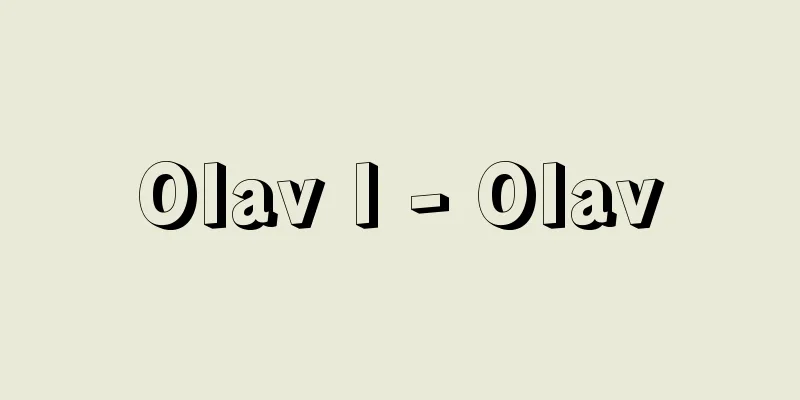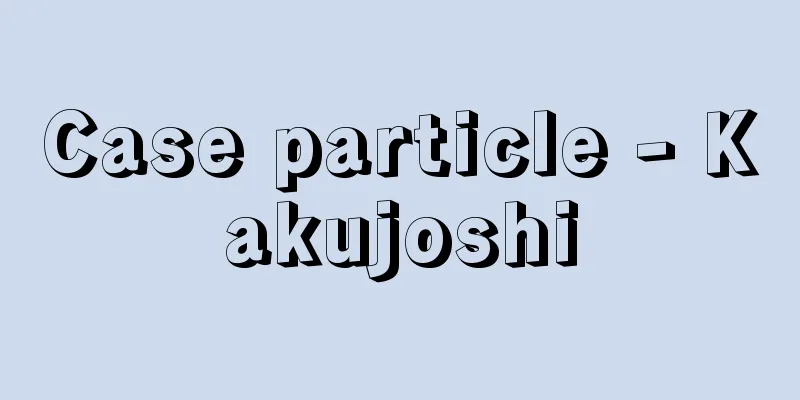Parricide - parricide

|
The crime of killing one's own or one's spouse's direct ascendants (parents, grandparents, etc.). Also called ascendant murder. This was deleted in a partial revision of the Penal Code in 1995, but until then, it was punishable by death or life imprisonment under Article 200 of the Penal Code. Taking another person's life against their will is considered murder (Article 199 of the Penal Code), but it was an aggravated crime that increased the sentence for murder when the victim was a direct ascendant. The current Constitution provides for equality under the law in Article 14, but after the Second World War, there has been a debate in academic theory and precedent over whether the provision on killing an ascendant violates the principle of equality. In the fields of constitutional law and criminal law, the view that the provision on killing an ascendant is based on feudal morality and violates the principle of equality has been dominant. In response to this, the Supreme Court, in a Grand Bench decision in 1950, ruled that the provision does not violate Article 14 of the Constitution because it is based on "the universal moral principle of mankind, that is, natural law." However, in 1973, the Grand Bench of the Supreme Court changed its previous precedent and ruled the provision unconstitutional, stating that the statutory penalty for killing an ascendant is particularly heavy, "death penalty or life imprisonment," and that even if it is reduced, the minimum sentence is three years and six months imprisonment, which is too severe because it cannot be suspended. Therefore, it constitutes unreasonable discriminatory treatment prohibited by Article 14 of the Constitution. Therefore, the provisions on parricide were not applied in legal practice, but were deleted by the 1995 amendment. [Tetsuro Nawa] [Reference] | | |Source: Shogakukan Encyclopedia Nipponica About Encyclopedia Nipponica Information | Legend |
|
自己または配偶者の直系尊属(親や祖父母など)を殺す罪。尊属殺ともいう。1995年(平成7)の刑法一部改正によって削除されたが、それまでは刑法200条によって、死刑または無期懲役に処せられた。他人の生命をその意思に反して奪う行為は殺人罪(刑法199条)にあたるが、被害者が直系尊属である場合に殺人罪の刑を加重する加重犯であった。 現行憲法は、その第14条において法の下の平等を定めているが、第二次世界大戦後、この尊属殺人の規定がこの平等原則に違反するかどうか、が学説や判例で争われてきた。このうち、憲法学や刑法学の領域では、尊属殺人の規定が封建的な道徳観にたつものであり、平等原則に違反するという考え方が支配的であった。これに対し、最高裁判所は、1950年(昭和25)の大法廷判決において、この規定は「人類普遍の道徳原理、すなわち自然法」に基づくから、憲法第14条に違反しない、との判断を下した。ところが、1973年の最高裁大法廷は、従来の判例を変更し、尊属殺人に対する法定刑がとくに重い「死刑または無期懲役」であり、これを減軽しても下限が3年6か月の懲役刑で、執行猶予となりえないのではあまりにも刑が重すぎるという理由から、憲法第14条が禁止する不合理な差別的取扱いにあたるとして、違憲判決を下した。そこで、法の実務では尊属殺人の規定は適用されていなかったが、1995年改正により削除された。 [名和鐵郎] [参照項目] | | |出典 小学館 日本大百科全書(ニッポニカ)日本大百科全書(ニッポニカ)について 情報 | 凡例 |
<<: Superiors and subordinates - sonzokuhizoku
Recommend
Dhānbād (English spelling)
A mining town in the eastern part of Bihar state i...
Kikoku Residence Shoseien
…This Kawara-in is said to be the model for the N...
Yuriy Petrovich Lyubimov
Russian director and actor. Born in Yaroslavl. Gr...
Financial inflation
A type of demand inflation in which total demand e...
Crossopterygii
...The oldest of this group is the Placodermi, wh...
Sir Halford John Mackinder
Born: February 15, 1861. Gainsborough [Died] March...
Heurige
…It is similar to the Obon festival in Japan. Aft...
Dipleurula
…The phylogenetic relationships of echinoderms ar...
Sringeri
…His influence on later generations was so great ...
Sinn Fein
A political group that promoted the Irish independ...
Reseda odorata; common mignonette
An annual or biennial plant of the family Oleaceae...
Jukichi Uno - Jukichi Uno
Born: September 27, 1914, Fukui [Died] January 9, ...
Federation Internationale Syndicale de l'Enseignement (English)
… Internationally, the Educational Workers Intern...
Nissei - Nichijo
Year of death: Ōan 2/Shohei 24.6.27 (1369.7.31) Ye...
tigon
… Interspecies hybrids between tigers and lions a...









